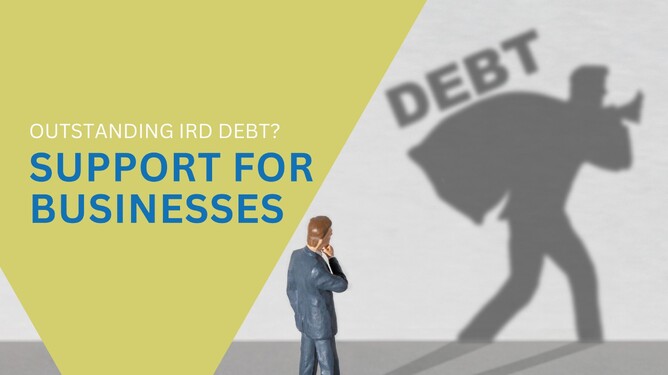What happens if you don’t pay your taxes in New Zealand? If you don’t complete your tax return or file on time IRD can issue penalties. The penalities apply to late filing and payments, shortfalls and criminal activities and can range from $50 to a prison sentence.
It’s tough out there. Many New Zealand companies are in financial distress. The Warehouse Group has reported another year of financial loss. The IRD has reported that $1.4 billion is owing from the 2025 tax year. There’s still $48 million owing in unpaid tax from 2018.
Therefore, the IRD are launching a campaign that focuses on collecting debt — particularly GST and employer debt. This will be targeted at businesses with debt that is less than 12 months old, and will include the following process:
They will start by contacting customer directly to resolve debt
If they get no response, they will leave a message and ask you to return the call.
If you don’t respond. They will call again. But they won’t leave a message.
If they don’t hear back from you, one of the following will happen:
They’ll offer a pre-approved payment plan,
Or, they’ll just deduct the overdue debt straight from your bank account.
Contrary to common perception, the IRD is reasonable and are willing to work with businesses facing financial difficulties. They understand that these circumstances can be challenging but are more likely to assist if they understand your circumstances. It’s better not to bury your head in the sand. Your debt isn’t’ going to go away.
Struggling with Tax Debt?
IRD has a variety of options available to assist customers who are struggling with debt. The key to accessing these options is communication. Believe it or not, IRD is pretty reasonable about setting up a payment plan, but you need to get in touch. If a customer continues to ignore their obligations and do not engage with IRD, they have said they may take stronger actions, including debt enforcement or insolvency proceedings. But this is a step they would prefer to avoid.
If you can’t meet your payments, they may be able to write off penalties to make it a little easier, but they will need certain information before they can make a decision about financial relief.
Take Control of Your Finances
I understand that if you’re already struggling adding a bookkeeping bill to your worries, might be out of the question. But, if you’d like to speak to an expert before you contact the IRD, I can offer tailored advice for your situation before your debt escalates.
For an estimate on how much it costs to hire a bookkeeper, read my price guide. Here are some tips to help you get that tax debt under control.
Payment plans: The Inland Revenue Department (IRD) offers flexible payment plans that make debt payments more manageable. These plans can be tailored to your cash flow, ensuring you can meet your obligations without undue stress.
IRD is reasonable: Contrary to common perception, the IRD is reasonable and willing to work with businesses facing financial difficulties. They understand that these circumstances can be challenging but are more likely to assist if they understand your circumstances.
Be aware of what you owe: Keeping track of your tax obligations will help you avoid getting into debt in the future. I recommend setting up a process that records your transactions, such as accounting software. Regularly reviewing your accounts will ensure you know what you owe so you can avoid surprises.
Penalties and interest: Be mindful of the penalties and interest that can accrue on overdue tax amounts. Addressing your debt sooner rather than later can prevent these additional costs from escalating.
How can a Bookkeeper Help?
Here’s a little-known secret! Tax agents (bookkeepers and accountants) can often get an extension to file your income tax return until the following March. This takes the pressure off the July deadline and gives you more time to get your paperwork together.
Remember a tax agent is actually a business expense and is therefore tax deductible, which contributes to a reduction of your overall tax bill.
We can:
Help you simplify your financials by getting them set up with an accounting software programme, like MYOB or Xero.
Do a full reconciliation of your financials to get a better understanding of your debts or creditors and anything that might be outstanding.
Prepare a monthly account report to keep you up to date with how your business is performing.
Ensure that you comply with all Inland Revenue obligations including GST, PAYE and Fringe Benefits Tax.
Whatever industry you’re working in, handing over your financials to a bookkeeper can allow you to get back to the stuff you enjoy doing and the reason you started that business in the first place.
Get in touch! Email danny@balancedledgers.co.nz or phone 027 212 9569


